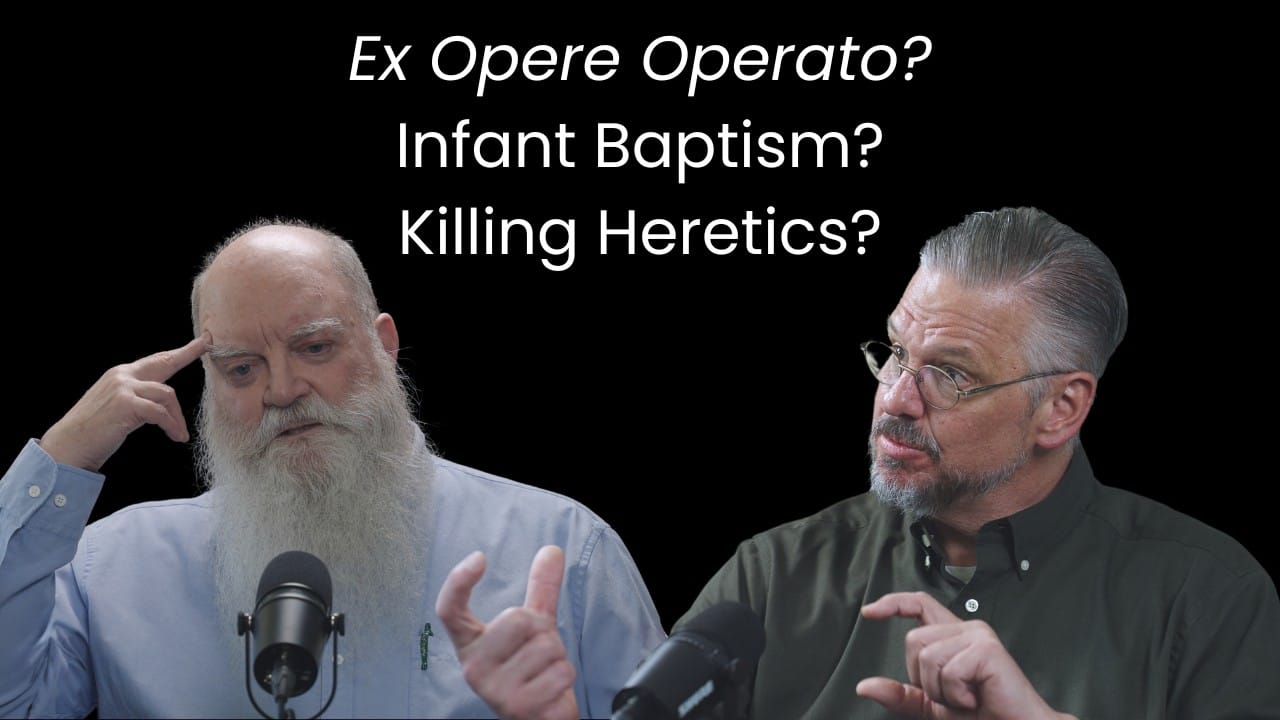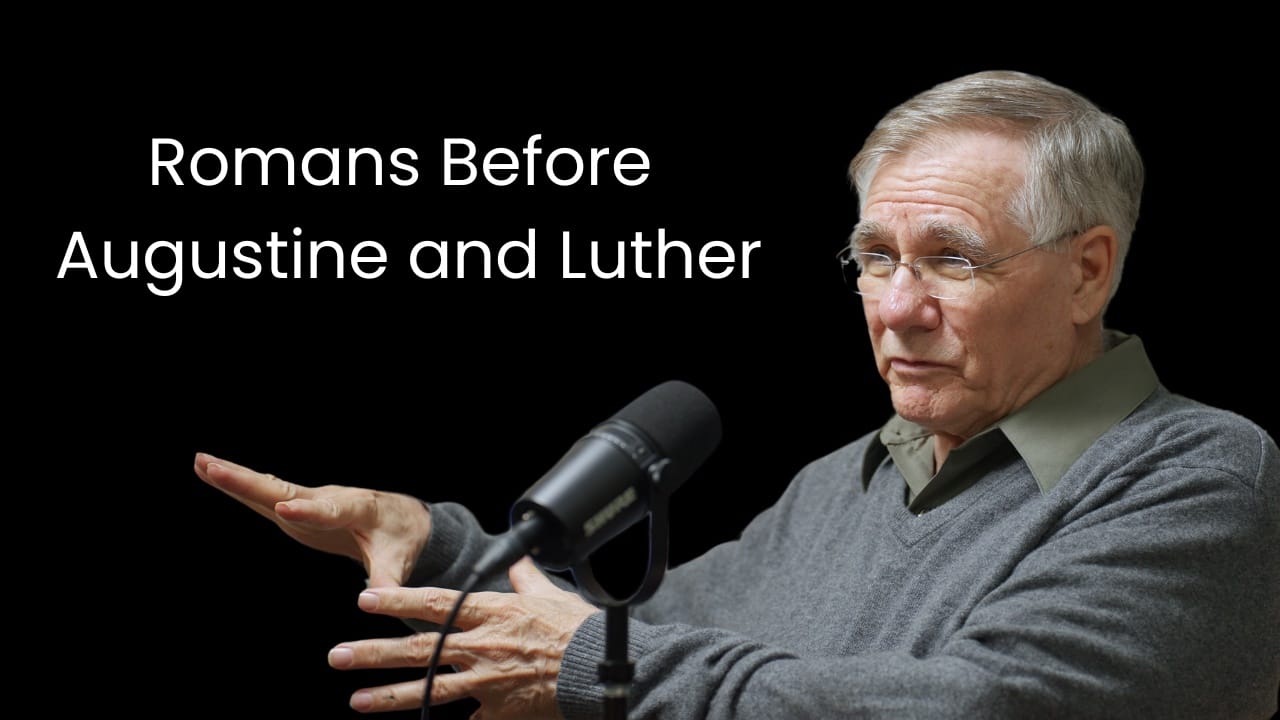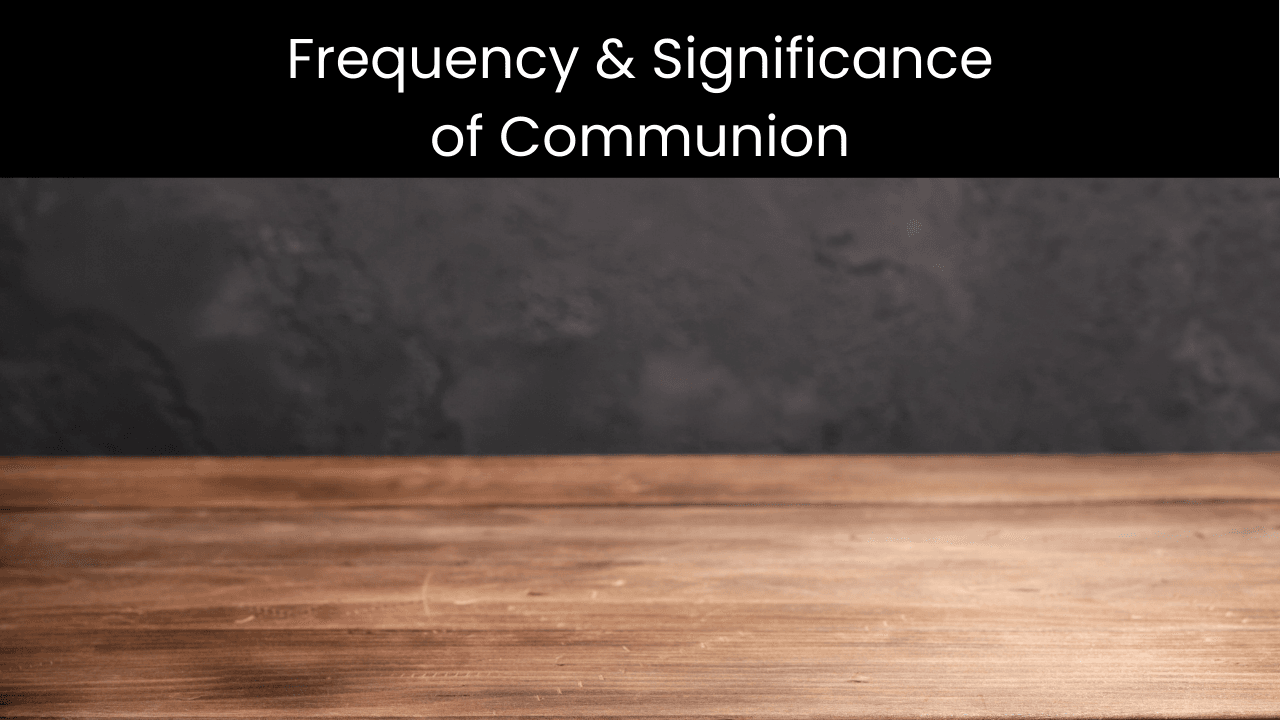Walk in the Unity Jesus Created
It is easy to get our thinking on Christian unity backwards. It is not that we should unite or create unity, but that God has united those who believe in Him, and we are called to act accordingly. The unity of believers is a fact. Jesus reconciled all to God in one body, and there is one Lord, one Father, one Spirit, and one calling. Our job is to walk in that unity by maintaining the unity of the Spirit and by growing into dynamic maturity as the body of Christ.
What does it mean to walk in unity? One dimension is that we don’t fight; we walk in love and patience with each other. Beyond that we actively care for each other. However, we are called not only to avoid fighting and to care for each other, but to move into the unity of the knowledge of Christ. This means a powerful, dynamic, inter-functioning body which builds itself up in love and manifests the fullness of God (Ephesians 4:1-17).
Why is it important to remember that Jesus creates unity, and not us? For one thing, God sets the terms of unity. We don’t get to pick what unity should look like or with whom we want to be united. There is already fundamental unity among God’s children. The question is how well we will honor that unity. Biological brothers are brothers whether they exercise brotherly love or not. So it is with God’s children. We need this perspective for two reasons. First, it reminds us that unity transcends comfort zones, ethnicity, subcultures, classes, etc. Second, it provides the context for wrestling with difficult questions around church structure, congregational membership, and how congregations fit with the larger church—even if it doesn’t immediately answer all those questions.
How Jesus Created Unity
Jesus created one new humanity out of two groups. The law of Moses had served to separate Israel from everyone else. Our English term “Gentiles” translates the Greek ta ethne. Literally this is “the nations”. So we can call Gentiles “the ethnicities”. These are the same ethnicities that Jesus told His followers to disciple: “Go make disciples of all nations.”
We who are Gentiles in the flesh were formerly apart from Christ (Ephesians 2:11-22). We did not share the hope and promises given to Israel, and we were not part of the “commonwealth” of Israel. But in Jesus’ death on the cross He got rid of the “partition,” as Paul calls the Mosaic law, that divided us from the covenant people. In His one body He also reconciled both Jews and Gentiles to the Father and He has given both access to God through one Spirit. The result is that we are fellow citizens, part of God’s household, and part of the new temple, which is the church.
In bringing together Jews and Gentiles, Jesus also brought together all the varied ethnicities that make up the Gentiles. He sends His people to all the nations: Jews, Greeks, barbarians, Scythians, and everyone. This diversity in the church, as well as the mixing of social and economic classes, adds to the challenge of walking in unity. The pages of the New Testament attest to that. So does our own experience. (Even blending Amish and Mennonite background believers creates challenges.) But Christian unity does not come from us having the same background. It comes from the one redemption of our one God. Ephesians 4:4-5 lists seven great “ones:” one body, one Spirit, one hope of our call, one Lord, one faith, one baptism, and one Father of all. This is why we strive to maintain the unity of the Spirit in the bond of peace.
Walking in Unity Means not Fighting
Imagine workers building a house without even basic unity. Someone has a tool that someone else wants. Another drops a board that smashes someone’s fingers. Without humility, patience, and bearing with one another (Ephesians 4:1) these situations escalate—I will drop the next one on his finger!—or worse.
Walk in a manner worthy of the calling to which you have been called, with all humility and gentleness, with patience, bearing with one another in love, eager to maintain the unity of the Spirit in the bond of peace. (Ephesians 4:2-3)
Respect for the unity Jesus created, and the peace He made requires us to humble ourselves, to accept annoyances and hurts, to not let the little things build into grudges, grievances, and fights. These little things come up every time people are together. Cultural differences, large or small, amplify the situation as we deal with different opinions, different habits, and different priorities. While humility and forbearance are most tested by close interaction, they are also needed toward people or groups that we relate to only indirectly. How do we talk about others? Do we have disdain or scorn for certain demographics? Or rather, do we seek to learn from them?
Walking in Unity Means Caring for Each Other
Of course, walking in unity and peace means more than the absence of fighting. If the house builders are going to walk in Christian unity, it’s not enough to just be pleasant on the job. Bearing each other’s burdens, rejoicing with those who rejoice, and weeping with those who weep, is part of Christian unity. When one suffers, all suffer. This means prayer, a listening ear, and just plain practical help. I well remember the day when, in a time of financial duress, our family minivan had yet another damaged tire. A brother drove the 30 miles to our house, during the workday, and put another tire on the van. Other times practical help might take the form of childcare, helping someone navigate difficult paperwork, or a straightforward cash gift.
Walking in Unity Means Dynamic Inter-functioning
Unity means more than not fighting, and even more than caring for each other. In fuller dimension, unity means synergy, and it brings amazing capacity for good. Think again of a carpenter crew. We don’t want to know just whether they fight, or whether they care about each other’s difficulties, but whether they get something done together. Lots of things in building a house take more than one person, whether is standing up a wall, or attaching a long board. Functional unity is not just about forgiving the person who drops a board on you, but about being able to work together to get and keep that board where it belongs, so it doesn’t fall in the first place.
Ephesians chapter four describes a “unity of faith and knowledge” that Christ’s body grows into as each saint carries out his Christ-empowered ministry. The first part of that chapter calls us to maintain unity in peace by how we relate to each other. The middle verses of the chapter, explain that “apostles, prophets, evangelists, shepherds and teachers” are given by Christ to equip the saints for ministry, so that the body can build itself up in love. Unity in the knowledge of Christ means maturity (as measured by the fullness of Christ!) and strength against fads of doctrine or thinking. This comes when believers articulate God’s truth, and every believer supplies their contribution to the body.
Sometimes I see groups of people where I respect all of them individually, and yet wonder why the collective result of their life together is not better. The problem is not always that they are fighting or failing to care about each other. Sometimes the missing ingredient seems to be simply the ability to function together in ways that accomplish what needs to be done. Full Christian unity allows us to perform complex actions that none of us could accomplish alone.
At the same time, I remember that the Spirit of God moves in quiet ways. Jesus told Nicodemus that the person born of the Spirit is like the wind which blows where it wants, and we don’t know where it comes from or where it goes. A group may appear stuck on the surface while the quiet work of relationships, teaching, and caring move powerfully in its depths. Hidden faithfulness will eventually blossom in public results. Even if we never know the saints who labored long for that fruit, God sees.
Thinking about Unity and Church Structures
As I understand the New Testament, the term “church” (ekklesia—assembly) refers in its primary sense to particular groups that actually assemble on a regular basis. The scriptures reference “the church in so-and-so’s house” or “the churches in such-and-such region.” The word church can also be used to refer to the whole group of such churches in a city or region. In a more extended sense, the word “church” can also be used in ways that embrace the entire global community of Jesus followers.
We are called to walk in unity at all levels of church: local, regional, and global. The local level of the weekly gathering may be the most up-close demonstration of Christ’s unifying power (or of our rebellion against His unity). Our peace with these believers cannot be merely abstract, since we are literally in each other’s faces and our differing spiritual gifts as well as our areas of unspiritual carnality are brought to collision. However, neither are relations in the broader church to be merely abstract. The Holy Spirit is not to be our only point of connection. As the New Testament shows, apostles, as well as other teachers and travelers, circulated among the churches. Money moved between churches. And as both the New Testament and later Christian writings make clear, letters went back and forth to address difficult situations. So also for us, it is important that teachers, money, and other forms of learning and care circulate among wider circles of the Christian church.
One temptation with the local church is to think of it as something we choose, rather than as a group that God assembles. It is true that no one should be coerced into church and that believers sometimes have multiple good options for what congregation to attend. However, the fundamental reality is that God, not us, puts people together and that He does that putting together through various means including the circumstances of birth, jobs, social networks, aging parents, etc. Our calling is not to manufacture unity by self-segregation, but to honor God’s unity by walking with the believers He put us in proximity with.
How Do We Walk Forward?
It is easy for us to think that our situation is drastically different than the situation in New Testament times. They had one church with small congregations linked by a dozen or so apostles. We have myriads of church structures and denominations, intractable disputes over doctrine and practice, and people of different backgrounds moving over the face of the whole earth. However, we should not be too quick to let ourselves off the hook by saying they had it easier.
The New Testament church also existed in a pluralist, multi-cultural society. The cities of the Roman empire brought together peoples, languages, and ideas of all sorts. The most prominent difficulty the church had to face was bringing together Torah-observant Jews and non-Torah-observant Gentiles. The pages of the New Testament reveal other difficulties. There were Greeks coming together with barbarians and Scythians, masters and slaves both in the household of faith, false teachers needing silenced, and local leaders who refused to welcome traveling missionaries. There were people who tried to form groups around particular Christian teachers and people who bragged about tolerating outrageous sexual immorality.
So we can’t say that New Testament era unity occurred in the absence of challenges. Like us, they sometimes struggled to differentiate false teachers from brothers. They also struggled to distinguish between concern for godliness and ethnocentrism. They did at least have apostles to clarify the contours of faithfulness. When it comes to broad-scale Christian unity, we work with multiple challenges. Not only do we have different habits of culture, we have intense biblical convictions that are not shared by some Christians, even obviously sincere Christians. Add to that the indisputable fact that many churches tolerate open sin that should result in excommunication, and large-scale visible unity looks impossible.
Does this mean there is no way forward and that all is lost? No! For one thing, unity and cooperation can exist outside of formal denominational structures. Just as importantly, none of us has a shortage of opportunities to bear with others, to hear from others, to care for others, to share with others from what God has given us. We have places to walk in unity in our personal lives, and we need to do this with all our God-given relationships. This won’t be easy, but it will be possible with God. Maybe God will use us to bring more visible manifestations of unity. Or, maybe we will live our lives in hidden love. Perhaps God calls us to lifelong weeping over sin and disunity in the church. In any case our call is to be faithful as servants of God who care for His body which is the church, the fullness of Him who fills all in all (Ephesians 1:23).
__________________________________








Leon Moyer
2 years ago
Marlin,ne The last chapter of the above essay struck a cord with me because it looks like I am one of those who has been called to a lifelong weeping over this unity among those who call themselves Christian, especially those of the anabaptist background. I keep hoping for more concrete examples of steps we may all take to bring ourselves into unity of the spirit. Perhaps the most important thing is to speak the truth to one another because that is love and anything that is not true from the gospel and inspired scriptures, is not representative of Love toward anyone else. Can there ever be fellowship in unity between two or more people who do not acknowledge the truth that Jesus taught?.